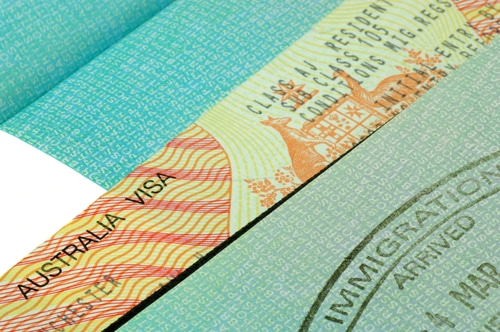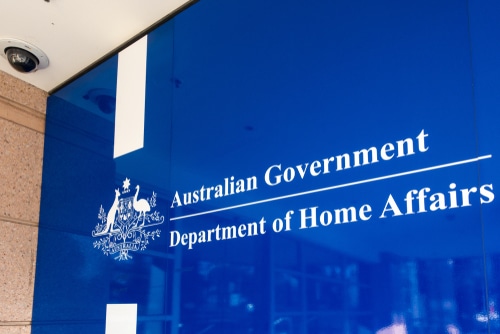Key Highlights
- Get a clear picture of what US citizens need to qualify for immigration to Australia.
- Learn about the different visa options available for moving from the United States.
- Find out what skilled workers and professionals should know before applying.
- Understand the steps involved in the application process and which documents are required.
- Get helpful tips that can make the immigration process faster and easier.
- Discover the long-term benefits of living in Australia and how to become a citizen.
Moving from the United States to Australia is a big step, but it can also be an incredibly rewarding one. With its high quality of life, beautiful landscapes, and strong economy, Australia is an appealing destination for many Americans. That said, immigrating is a formal process that involves careful planning. The Australian Department of Home Affairs manages immigration, and they have clear requirements you’ll need to meet. Whether you’re moving for work, school, or a fresh start, this guide will help you understand what’s involved.
Eligibility Requirements for US Citizens
If you’re a US citizen planning to move to Australia, you’ll need to meet certain eligibility criteria. These include your age, health, and background. You’ll also need to prove your English language skills and show that you have the right qualifications for the visa you’re applying for.
Basic criteria for visa applications
The Department of Home Affairs outlines the basic rules for visa applicants. You’ll need a valid passport, and you may be asked to complete health exams and provide police certificates to confirm your character. It’s also important to understand what’s expected for your specific visa type. Checking the Department of Home Affairs website can help you stay informed about the most current requirements.

Types of Visas Available for Immigration
Australia offers several visa pathways for US citizens, depending on your goals and background. Popular options include:
- Skilled Independent Visa (subclass 189)
- Employer Nomination Scheme Visa (subclass 186)
- Regional Sponsored Migration Scheme Visa (subclass 187)
- Business Innovation and Investment Visa (subclass 188)
- Student Visa (subclass 500)
Each visa comes with its own requirements and benefits. For example, some are points-based, while others require sponsorship from an employer. You can read full details on each option on the Department of Home Affairs website to find the best fit for your situation.
Special Conditions for Professionals and Skilled Workers
Professionals and skilled workers may find it easier to qualify for certain visas, especially if their occupation is in demand in Australia. The government maintains lists such as the Medium and Long-Term Strategic Skills List (MLTSSL) and the Short-Term Skilled Occupation List (STSOL). Your occupation must appear on one of these lists to be eligible for many skilled migration visas. You’ll also need to prove your qualifications, English proficiency, and work experience.
Application Process for Australian Immigration
Once you know you meet the eligibility requirements, the next step is submitting your application. The process involves several steps and can take time, so being organized will help.
Step-by-step process from application to approval
Start by creating an ImmiAccount on the Department of Home Affairs website. This is where you’ll manage your visa application. Fill out your application carefully and accurately, then pay the required visa fee. After submitting, check your ImmiAccount regularly for updates or additional requests. Once your visa is approved, you’ll receive an official visa grant notice. At that point, you’re ready to start planning your new life in Australia.
Documents you’ll need
You’ll need to provide several important documents. These typically include:
- A valid passport
- Medical exam results
- Police clearance certificates
- Proof of English language skills
- Financial documents showing that you can support yourself
- Skill assessments for some visas
Having all your paperwork ready and complete will help avoid delays during the process.
Tips for Speeding Up the Immigration Process
Immigrating to another country can be complex, but there are ways to help things move more quickly. Consider hiring a licensed immigration agent or lawyer who understands Australian immigration law. Keep your documents well organized and respond quickly to any follow-up questions from officials. Use tools and resources from the Department of Home Affairs website to make sure you’re on track. Getting expert advice can also help avoid common mistakes.

Australia Immigration Resources
Department of Home Affairs – Immigration and Citizenship: Find detailed information on visa types, eligibility requirements, application steps, and policy updates.
https://immi.homeaffairs.gov.au
ImmiAccount Login: Start, manage, and track your visa application online.
https://online.immi.gov.au/lusc/login
Skilled Occupation Lists (MLTSSL and STSOL): Check if your profession is eligible for skilled migration to Australia.
https://immi.homeaffairs.gov.au/visas/working-in-australia/skill-occupation-list
Visa Finder Tool: Unsure which visa is right for you? This tool can help you compare options.
https://immi.homeaffairs.gov.au/visas/getting-a-visa/visa-finder
Australian Government – Health Requirements for Visa Applicants: Learn about health exams, requirements, and approved panel physicians.
https://immi.homeaffairs.gov.au/help-support/meeting-our-requirements/health
Foreign Investment Review Board (FIRB): If you plan to buy property in Australia, check the FIRB rules and application process.
https://firb.gov.au
Medicare for New Residents: Understand who is eligible for Medicare and how to enroll.
https://www.servicesaustralia.gov.au/medicare-for-people-moving-australia
Frequently Asked Questions
What is the average processing time for an immigration application?
Processing times vary depending on the visa type and your individual situation. Some visas are processed in a few months, while others may take over a year. The Department of Home Affairs updates average timelines on their website regularly.
Can US citizens own property in Australia immediately after immigration?
Yes, but there are some conditions. US citizens can buy property in Australia, although residential purchases usually require approval from the Foreign Investment Review Board. The rules are different for commercial properties.
Are there any healthcare benefits for new immigrants?
Some new immigrants are eligible for Medicare, Australia’s public healthcare system. If your visa includes access to Medicare, you’ll be able to receive free or low-cost healthcare services. It’s worth checking your visa conditions to understand what you’re entitled to.
